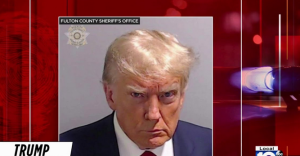Photos: YouTube Screenshots
The ruling yesterday by the U.S. Court of Appeals for the DC Circuit was a landmark in American law.

Three DC Circuit judges emphatically rejected Donald Trump’s claim of immunity from prosecution, which they described as “unsupported by precedent, history, or the text and structure of the Constitution.” They deftly deflated his pretensions: “For the purpose of this criminal case, former President Trump has become citizen Trump, with all of the defenses of any other criminal defendant.” The court refused to accept an interpretation of the Constitution under which “a President has unbounded authority to commit crimes that would neutralize the most fundamental check on executive power — the recognition and implementation of election results.”
It was an epic case — but also an easy one. Now the Supreme Court should do its part by refusing to hear an appeal.
It has been long assumed that while presidents cannot be criminally prosecuted while in office, former presidents can be. Gerald Ford’s pardon of Richard Nixon in 1974 was necessary, Ford explained, because the former president would soon be indicted. Bill Clinton agreed to a fine and suspension of his law license after leaving office to avoid prosecution. During Trump’s second impeachment, his own counsel argued that impeachment was unnecessary because Trump could be tried in court for his alleged crimes.
So the ruling was not a surprise. However, it was a refreshingly strong and definitive opinion, crafted, presumably, to be the final word. If only it had come sooner.
Of note, the decision sets conditions to get the preparations for Trump’s criminal trial moving again — and quickly. The circuit court gave Trump until Monday to appeal to the Supreme Court. Trump undoubtedly will do so.
Still, there is almost no chance the Supreme Court will reverse this ruling. Even the current hard-right Court likely will not accept Trump’s vision of a president-king. The justices weren’t interested in the former president’s arguments to overturn the election in 2020. And they seem to have noticed the wicked public blowback they’ve received recently, especially on some democracy-related cases. The justices rejected the conservative fan-fiction reading of the Constitution known as the “independent state legislature theory,” and they declined the opportunity to destroy the last vestiges of the Voting Rights Act.
What matters right now is that Trump’s federal trial for trying to overthrow American democracy begins soon, so voters can know whether they are being asked to elect someone who committed felonies. The Supreme Court should refuse to hear the case. That would endorse this decision while saving time.
When the Supreme Court wants to, it can act fast. The justices may find it hard to resist the temptation to make a grand ruling. But timing now matters more than rhetoric.
Let’s get on with the trial.









